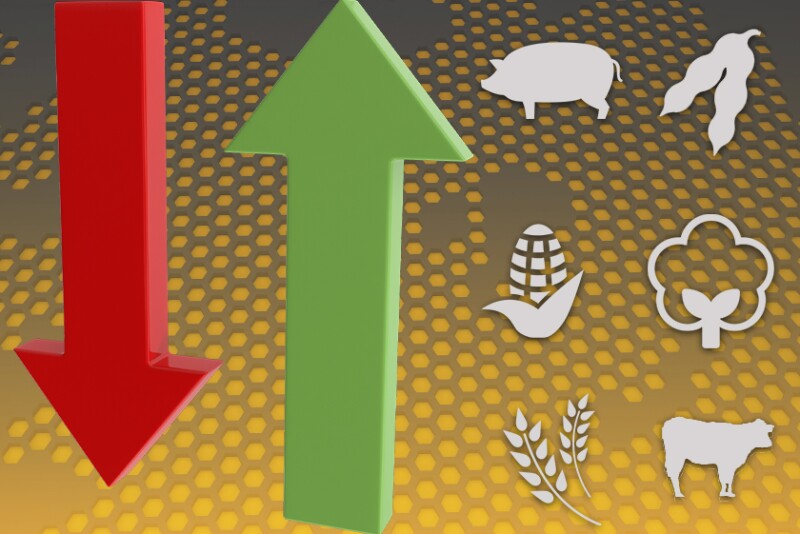GRAIN CALLS
Corn: 1 to 2 cents lower.
Soybeans: Steady to 1 cent higher.
Wheat: 9 to 13 cents lower.
GENERAL COMMENTS: Grain futures fell overnight amid concern surging Covid cases in China may curb commodity demand. Soybean firmed slightly from initial weakness and remained above $15.00. Malaysian palm oil futures ended little changed after reversing earlier losses, while front-month crude oil futures were down over 75 cents. U.S. stock index signal a stronger open, while the U.S. dollar index is over 400 points lower.
USDA’s weekly export sales data for the week ended Dec. 22 will be delayed till Friday morning due to Monday’s holiday.
The Biden administration will require anyone arriving by air from China (including Hong Kong and Macau) to provide a negative Covid test, following a surge of Covid-19 cases across China as Beijing has eased its strict zero-Covid rules. Under the new rules, which take effect Jan. 5, anyone two years and older will need to show a negative result from a test taken within two days of their departure from airports in mainland China, Hong Kong and Macau, administration officials said.
While much of Argentina receive rain the past week, the main production areas in La Pampa, southern Cordoba, and neighboring areas generally only received light amounts of moisture, World Weather Inc. said today. “The drought is ongoing, and the environment remains less than favorable… for crop establishment and growth,” the forecaster said. Rain expected this weekend “will be too light to seriously change the status of drought and any improvement in crop conditions will be temporary.
New China grain reserves company will begin operations in January. China state-owned grains trader COFCO said a new joint venture it has set up with state stockpiler Sinograin to manage the country’s grain reserves will officially begin operations next month. The China Enterprise United Grain Reserve Co. Ltd was established in September, according to COFCO, and is part of Beijing’s efforts to improve the efficiency of its grain reserves and better ensure food security.
India extended a policy to import refined palm oil at a lower duty “until further orders.” In December 2021, India cut basic import tax on refined palm oil and brought down the total taxes on imports to 13.75% from 19.25% previously. The concessional duty structure for the refined palm oil was due to expire on Dec. 31. India also raised the duty-free import quota of extra-long staple cotton to 51,000 MT for 2023 from 419 MT this year.
Indonesia will start its mandatory 35% palm oil biodiesel blending requirement on Feb. 1, a month later than initially planned, the energy ministry said. The start date for the B35 program was delayed “to ensure that supply, infrastructure, everything is ready,” energy ministry director Edi Wibowo said. Indonesia will maintain next year’s biodiesel allocation for domestic consumption at 13.15 million kiloliters, with Wibowo noting “excess January allocation will be used if there is an increase in demand.”
CORN: March corn traded within the previous session’s range overnight after posting gains the previous three sessions, ending Wednesday at $6.82 3/4, and the highest close since Nov. 4.
SOYBEANS: March soybeans traded within the previous session’s range overnight after rising 25 1/4 cents Wednesday to $15.14 1/4, the contract’s highest close since $15.29 on June 17.
WHEAT: March SRW traded 15 1/2 cent range overnight, within the previous session’s range, after rising 11 cents Wednesday to $7.85 1/2, the contract’s highest close since Nov. 30.
LIVESTOCK CALLS
CATTLE: Steady-mixed
HOGS: Steady-firm
CATTLE: Live cattle futures may remain steady as wholesale beef remains stable, with a mild 63-cent drop in choice cutout on Wednesday to $279.41 and $1.64 increase in select to $247.28. Load counts continue to be light at 102 loads. Cash sources signaled a couple packers in the northern markets raised their cattle bids from week-ago, an indication that they need supplies for post-holiday slaughter runs. Though most packers have been reluctant to bid more than steady prices as showlist numbers are up from last week. Feedlots appear to have no urgency to move cattle, suggesting it could take at least $1 higher prices to encourage active sales.
February live cattle fell 7.5 cents Wednesday to $157.80 after reaching contract highs Tuesday.
HOGS: Lean hogs may see light followthrough selling as cash weakness persists. The CME lean hog index is up $2.09 to $80.69 (as of Dec. 24), the highest price since Dec. 19 and the biggest one day jump since Feb. 21. Such an increase could mark the seasonal low, with prices likely to grind higher than see daily price surges. Pork cutout values fell $2.25 on Wednesday, led by a near $10 drop in bellies. February lean hogs fell 67.5 cents to $90.80 Wednesday after marking the highest level since Dec. 5.

